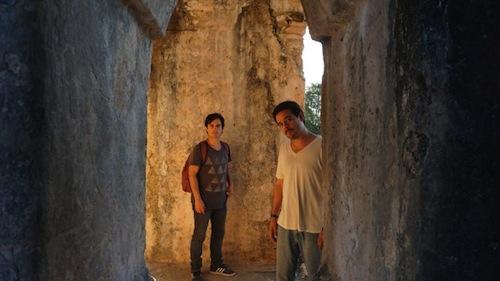Direction: Alonso Ruizpalacios
Country: Mexico / USA
Adapted from Arnold Wesker's play, La Cocina is an exercise in style, full of highs and lows. It portrays a large, chaotic, multicultural New York kitchen where steel clangs, voices clash, and bodies move with tense urgency. Mexican director Alonso Ruizpalacios (Gueros, 2014; Museo, 2018) crafts a hot-blooded, surreal, and poetic spectacle that often resembles a wild circus.
Amid the clamor, dreams and personal struggles simmer—money has mysteriously vanished from one of the registers, and suspicion falls on Pedro Ruiz (Raúl Briones), a volatile, immature Mexican cook who has gotten Julia (Rooney Mara), an American waitress, pregnant. The film’s atmosphere is zany and sometimes disorienting, yet it retains a certain magnetic pull.
Undocumented immigrants and the marginalized are at the heart of the story—they’re indispensable and yet exploited—and the film offers fleeting but poignant glimpses into their roles in the restaurant’s ecosystem, which mirrors the nation’s broader social dynamics. The characters feel vivid and authentic, each with distinct aspirations and personalities, contributing to a frenzied spectacle that veers between hilarious and excruciating.
La Cocina thrives primarily on its kinetic energy, with bursts of anger pushed deliberately to extremes, while also grappling with the dehumanizing mechanisms of an overburdened capitalist system that traps its workers. The score insightfully conveys the characters’ inner turmoil, and visually, cinematographer Juan Pablo Ramírez excels with striking black-and-white imagery and expressive camera work.













































